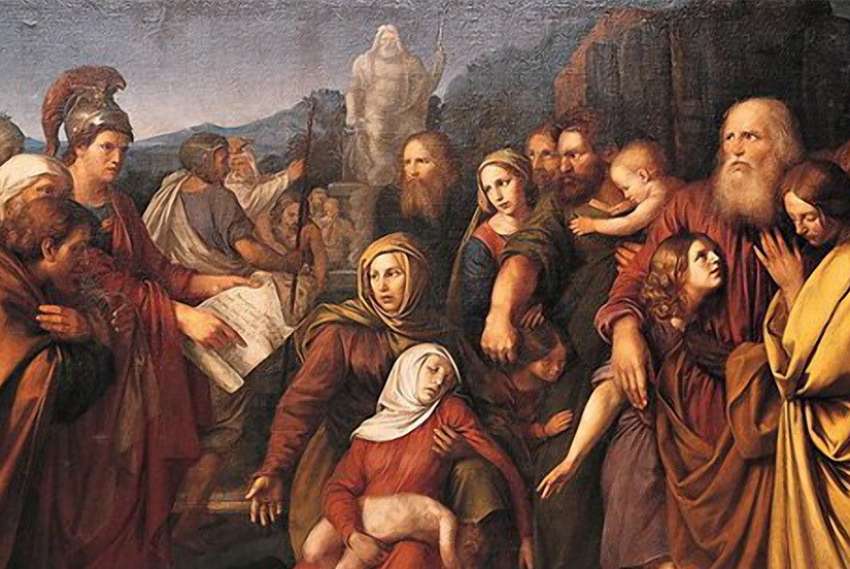What do we do when life seems grossly unfair and God appears to be unreliable? It would be nice if things always happened in a way that affirmed our beliefs.
In a world like that, prayers would always be answered immediately and clearly, the wicked would always get their comeuppance, and our good behaviour and fidelity would be promptly rewarded. Our biggest disappointments and struggles occur when that does not appear to be the way things work.
Some bear down and become even more fervent, while others walk away in disillusionment and cynicism.
During the second century BC, the Jewish people were savagely persecuted by the Greek kings ruling from Syria. Antiochus IV made every attempt to stamp out Jewish religion and customs, forbidding their practice under pain of death. Many people lost life, limb and property.
But what about God’s promise in Deuteronomy that if Israel obeyed the law the nation and its people would be prosperous and peaceful? For many, this represented a crisis of faith — could God be trusted and relied on? Fidelity seemed to be futile, for the wicked and disloyal appeared to be prospering.
The Book of Daniel was written during this period — the Maccabean War — and it answered some of those questions. It provided a bigger picture of the cosmic scenario that was unfolding, a peek behind the veil separating this world from the next.
The passage from Daniel is the first explicit reference to the resurrection of the dead and the final judgment in the Old Testament. All the dead would soon be resurrected so that evil people could be punished, and the virtuous and faithful ones rewarded.
The faithful were not fools, and God was indeed reliable and just. It was merely a case of inadequate human understanding. But that did not happen and many people are not content with putting off divine justice to some expected intervention in the future. Overwhelmed by the enormity of evil and injustice in the world, they ask a legitimate question: Where is God?
There are no quick and easy answers. The reading gives us a hint. In the grand scheme of things, those who walk with God are blessed, while those who take evil and selfishness as their guiding principles will always be the losers in the end. How and when that happens we do not know, but we do know that it is a moral universe, and that God is utterly faithful and dependable. Living according to that belief is one example of walking in faith.
Christ is still in the process of making His enemies a footstool and there is no telling how long that will take. It must be a very large footstool. But the message of the passage from Hebrews is that Jesus has already paid the price for us and is able to grant perfection and forgiveness of sins to those who trust in Him.
It gives us a sense of assurance — our life is not just a gamble, even if we make mistakes. We try our best to walk in the ways of the Lord, and Jesus will walk with us and make up for what we lack.
Many arguments have been waged and much ink has been spilled trying to figure out when the cataclysmic end will occur. As with all apocalyptic theology, the end was believed to be accompanied by great signs and wonders in the heavens. The final judgment will be heralded by the Son of Man coming on the clouds of Heaven with His angels.
Jesus, along with most first-century Christians, believed the events would take place soon — within their lifetimes. This obviously has not happened, but that has not dampened enthusiasm for making end-time predictions. There is the thoughtful warning in the text that all should heed: No one, not even Jesus, knows when it will happen. God alone knows, so who are we to try to pry secrets from God? More importantly, even though everything else passes away, the words or teachings of Jesus will not.
That is the key to this passage — His words are always with us and our concern should be living these out daily. Every day is the return of Christ; every day is the judgment.


